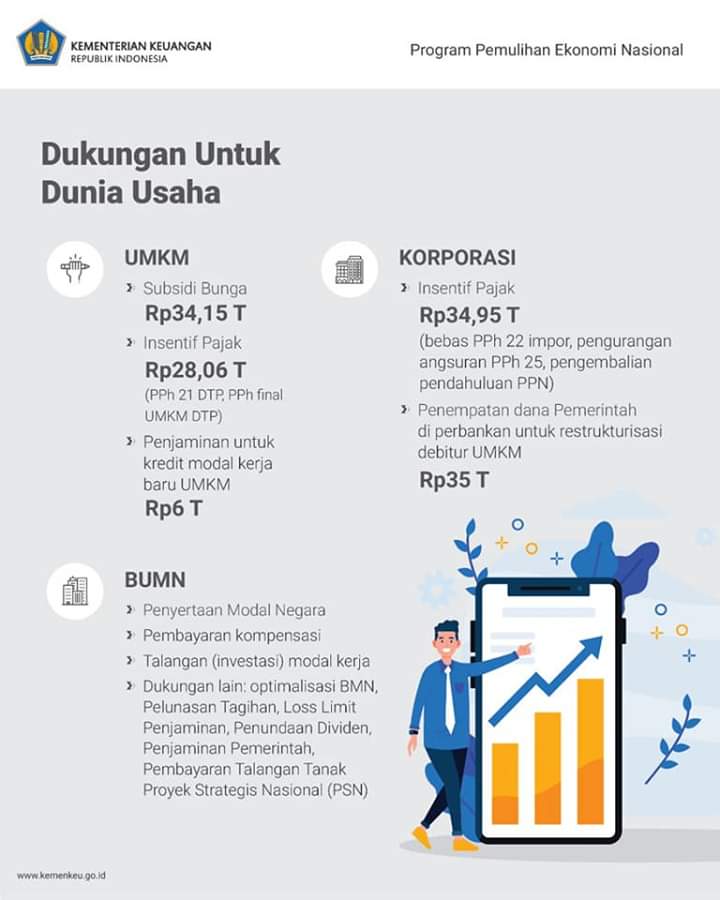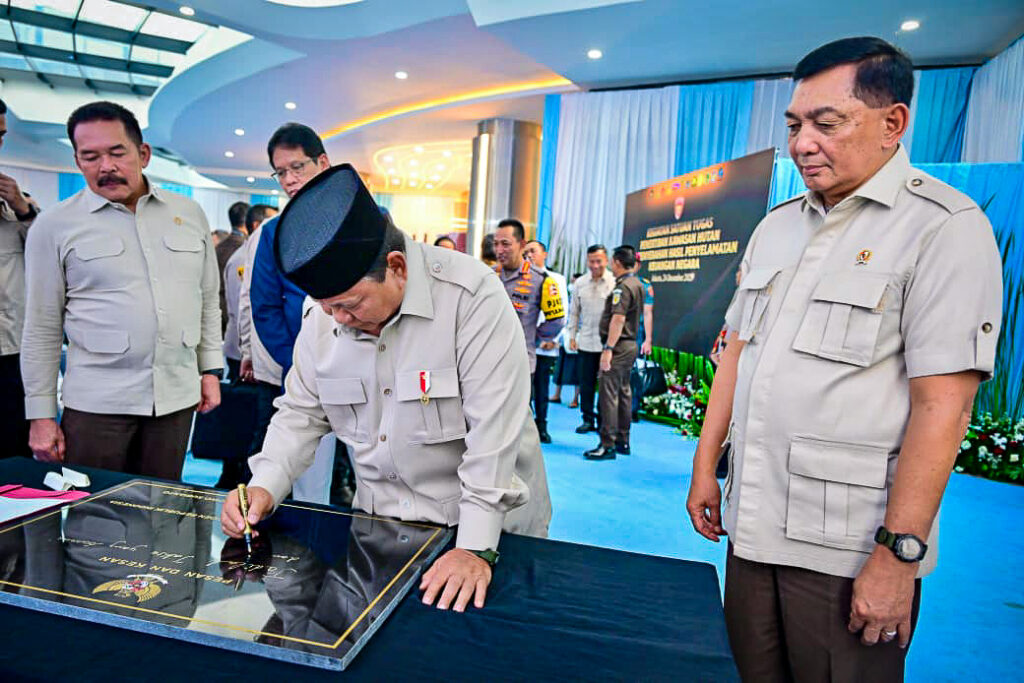Gov’t Issues PP 23/2020 for National Economic Recovery Programs

Following the issuance of Government Regulation Number 23 of 2020 (PP 23/2020) regarding the implementation of the National Economic Recovery (PEN) program, the Government is currently preparing the design of the PEN program through the modalities stipulated in the Government Regulation.
“The PEN program is expected to help the business sector, including small, micro and medium enterprises (MSMEs) and ultra-micro businesses, as well as strategic business sectors for the economy including SOEs,” Head of Information and Communication Bureau of Ministry of Finance Rahayu Puspasari said.
Based on PP 23/2020, the PEN program can be carried out through the mechanism of placement of funds, guarantees, State Capital Participation (PMN), and government investment.
“In addition, the Government can also recover the national economy through state spending in the early stages of the PEN program implementation,” Rahayu explained.
At present, the Government has completed the design of two programs, namely interest subsidies and placement of funds.
For interest subsidies, Rahayu explained that the Government supports the postponement of credit payments and budgeted an interest subsidy of Rp34.15 trillion which would reach 60.66 million accounts to support the ultra-micro and MSME businesses.
“This interest subsidy policy is a relief aid for ultra micro and MSMEs that have loans in financial institutions, so that they can survive even though their business has dropped significantly,” she said.
Interest subsidies, she continued, through financial institutions (banks, financial companies, Government credit channeling institutions in SOEs, BLUs, and / or cooperatives) are given to Ultra Micro and MSME debtors who meet the following criteria:
(i) has a maximum loan ceiling of Rp10 billion;
(ii) not being included in the National Blacklist of loans;
(iii) credit quality before COVID-19 (29 February 2020) is in collectibility 1 and collectibility 2;
(iv) have a tax number or register a tax number; and
(v) restructuring credit, especially for debtors with loans of more than Rp500 million to Rp10 billion. Subsidies are given for 6 months, with a rate of 6% for the first 3 months and 3% for the second 3 months.
“Debtors with credit loans of Rp500 million to Rp10 billion was given a 3% interest subsidy for the first 3 months and 2% for the second 3 months. As for debtors included in the government credit program, they are given a 6% interest subsidy for 6 months,” she explained.
According to Rahayu, in addition to providing interest subsidies to support banks and financial institutions that carry out MSME loan restructuring and channel additional new working capital loans, the Government will also place funds in banks.
“Participating banks and implementing banks are banks that is passed the Financial Services Authority (OJK) assessments,” she said.
To propose a fund placement, according to Rahayu, the implementing bank submits a proposal for the placement of funds to participating banks based on the restructuring, the amount of funds needed, tenure, liquidity conditions and position of securities ownership.
“Management and controlling shareholders give a guarantee about the accuracy of the fund placement proposal,” she explained.
Participating banks conduct research on implementing bank proposals, and may use Special Purpose Vehicle (SPV) to carry out such research, including collateral verification, collateral administration, billing and collection in the event of bad credit.
Based on the research of the proposal if approved, Rahayu explained that the participating bank submitted a placement of funds to Ministry of Finance.
“Ministry of Finance then requests the results of the OJK research on the health status of the implementing banks, the number of securities that have not been subject to repurchase and data on restructuring of implementing banks that have been carried out,” she added.
Ministry of Finance, she continued, places funds to participating banks based on the results of the OJK research and proposals from participating banks that meet the requirements in PP 23/2020 Article 11 (4).
Furthermore, the participating bank or SPV appointed by the participating bank distributes funds to the implementing bank in accordance with the approved proposal. The implementing bank uses funds from participating banks to support the needs of credit / financing restructuring and the provision of working capital.
“The Deposit Insurance Agency (LPS) guarantees that government funds are placed in participating banks,” Rahayu explained.
In the event that the implementing bank is unable to meet obligations when due, Rahayu continued, the Central Bank of Indonesia can debit the implementing bank’s checking account for repayment to participating banks.
“The Financial and Development Supervisor Agency (BPKP), the OJK and the LPS supervise the participating banks and implementing banks. The Government is currently preparing detailed PEN program and related technical regulations in accordance with the provisions of PP 23/2020, ” she said. (Ministry of Finance/EN)
Translated by: Estu Widyamurti
Reviewed by: Lulu Wuliarti








